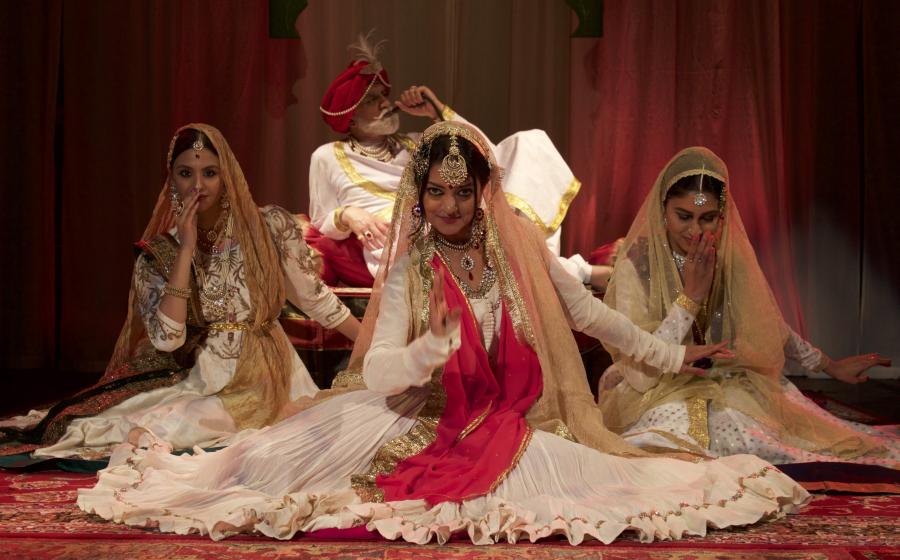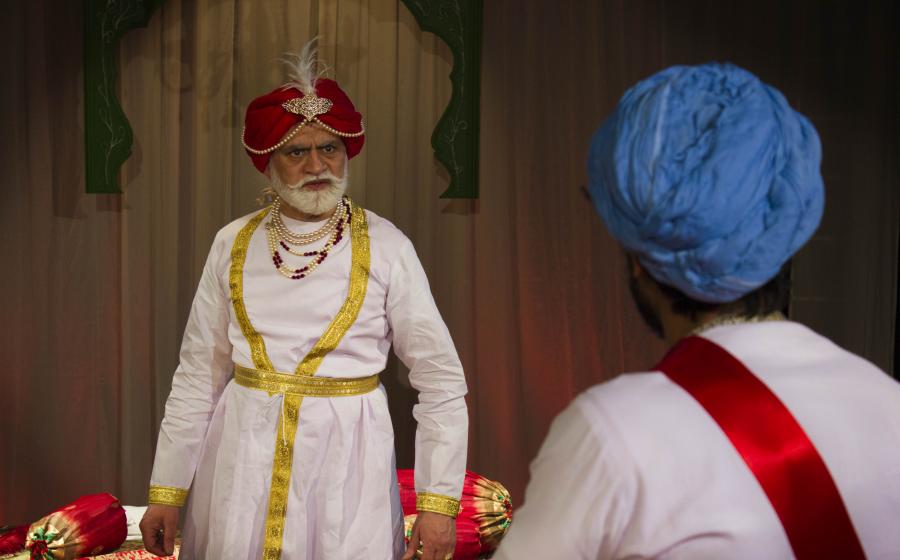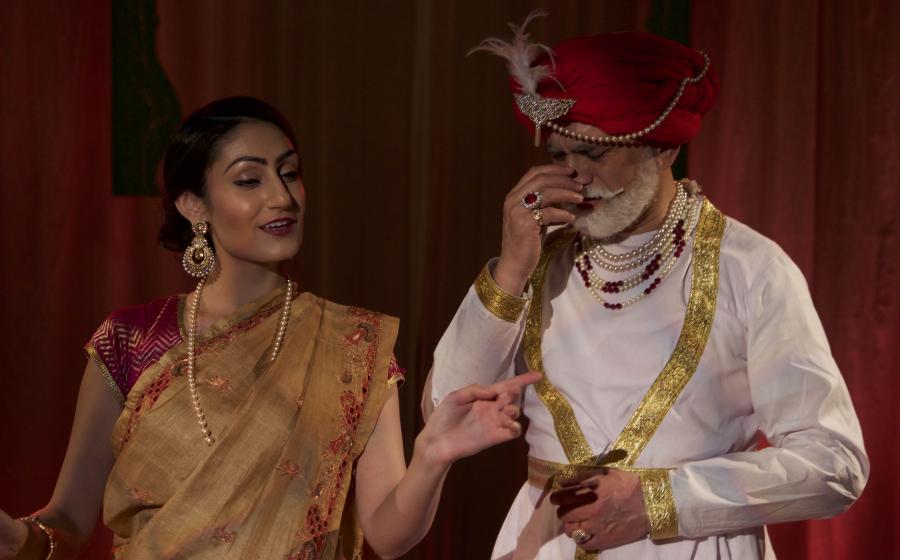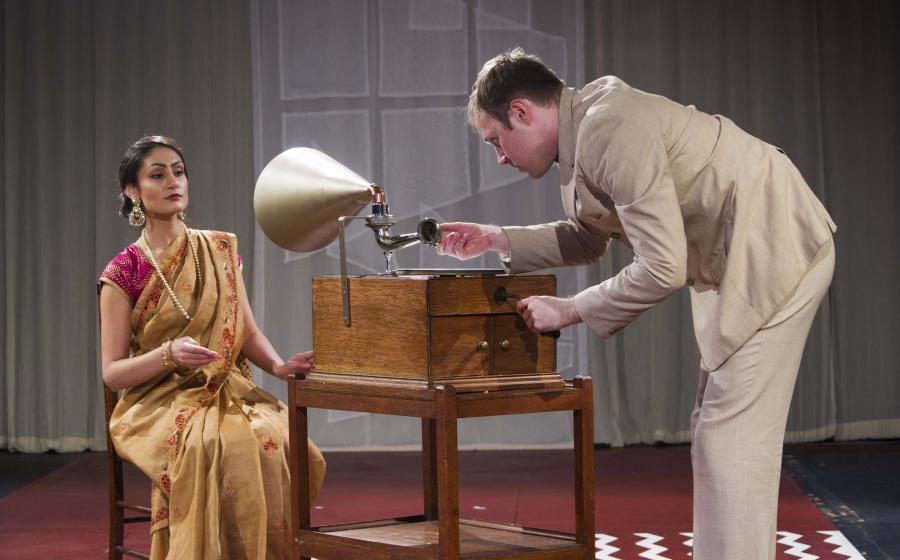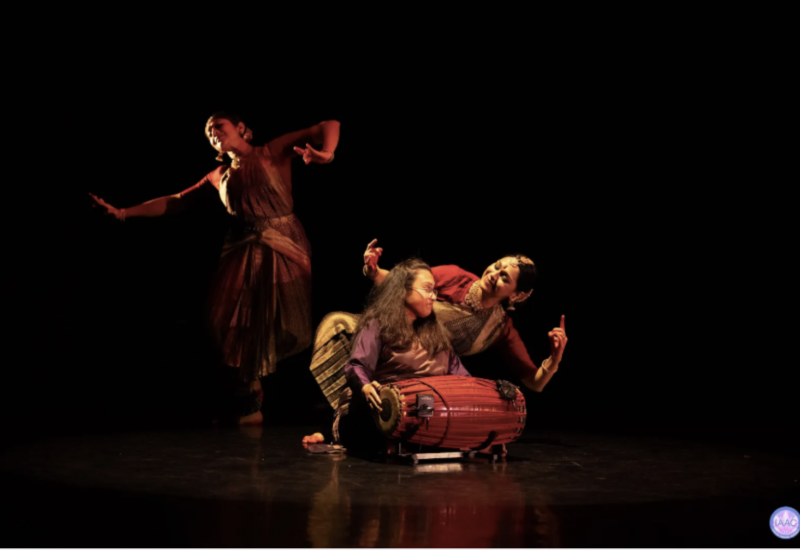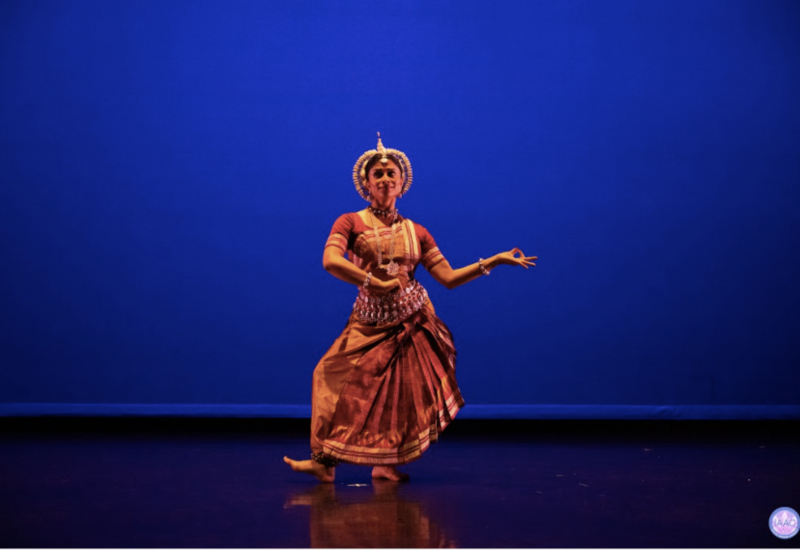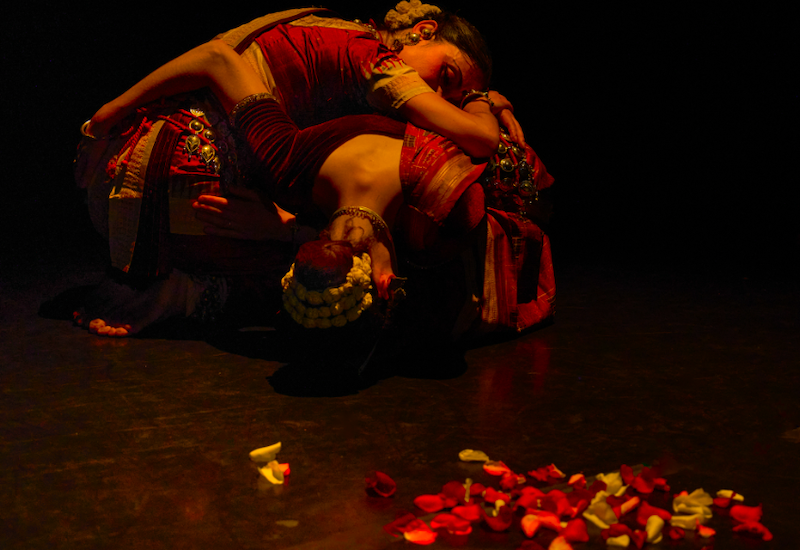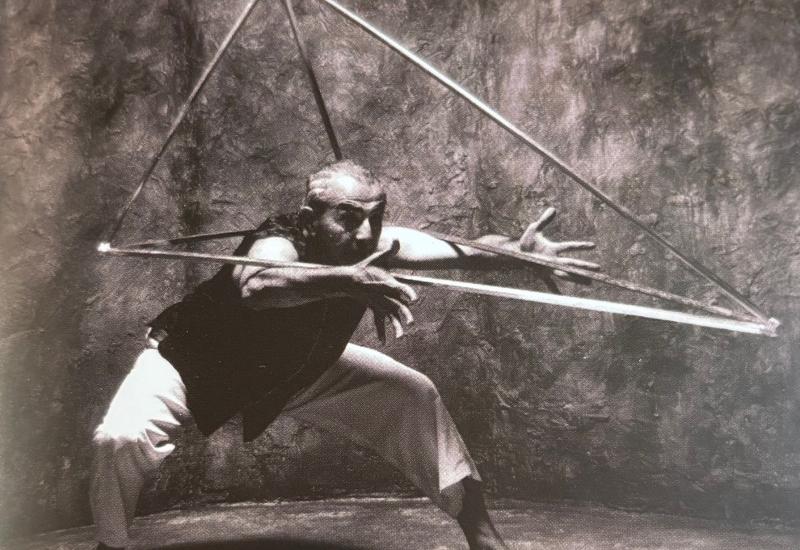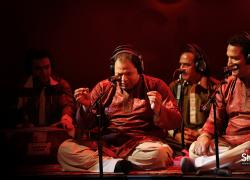Gauhar Jaan –The Datia Incident
Omnibus Theatre, London
13 April 2018
Reviewed by Sanjeevini Dutta
India 1904, Fred Gaisburg arrives from England, with the newly invented gramophone to record the authentic voices of India. At the top of his list is ‘the nightingale of Calcutta’, Gauhar Jaan, a courtesan famed for her honeyed tones and sharp wit. She eludes Gaisburg- where ever and whenever he mentions her name, folk refer to the ‘Datia Incident’- which becomes the slip between the cup and the lip of his recording his famous subject. The quest for Gauhar Jaan provides the play with its narrative thrust.
The audience is swept into the apartments in the royal household, doubling up as the King’s private chamber: carpeted and chandeliered with a kind of faded glory. The stage runs the length of the room which is flanked by audience on either side. Sheetal Kapoor as Gauhaar Jaan makes an impressive entry: glittering jewels, haughty stance delivering a volley of verbal barbs that are too quick-witted even for the wily chief adviser to the Maharaja, Bakshi Sahib (Devesh Kishore). We learn that the notes of Raga Puriya Dhanshree will not be tolerated by the Maharaja at the forthcoming circumcision ceremony, as this raga evokes bad memories. Gauhaar Jaan will make no such promise and her mission is to avenge the wrong done to her mother by the Maharaja’s father. The raga is her torture weapon.
The Maharajas in British India had no real work: no battles no conquest, no-government. To run. The British Raj took care of all that. Hence lolling about on a divan and spending idle hours in the company of musicians and dancers was their ‘time-pass’. Tarun Jajsani’s script has some plum moments particularly in the exchange between the King and his Minister. Harmage Singh Kalirai as the Maharaja has the regal figure and bearing, and his helpless protestations are convincingly played. Later when required to show malice and meanness, he is less successful.
One of the best scenes involves the exchange between Gauhar Jaan and the Maharaja of Datia in which insulting becomes a fine art. The Maharaja is left sputtering that royal apartments have been modelled on the interior of a brothel!
Gauhar Jaan’s victory is short lived as in a subsequent scene she is tricked by the Maharaja at the behest of Bakshi Saheb to signing a contract that deprives her of the freedom to sing outside Datia, thereby ending her glorious career.
A highlight of the first half is hearing the actual recording of Gauhar Jaan (EMI Archives that backed the project and research by Rolf Killius) while three dancers (choreographed by Arunima Kumar), take the space: their slow sweeping entry, gorgeous poses and sharp pirouettes have both a graceful and dynamic quality. Clearly kathak at the time of Gauhar Jaan would not have had such physicality but one can let historic exactitude pass for the sake of beauty.
The first half ends with the audience enjoying the suspense of which of the proposed versions is the definitive interpretation of the ‘Datia Incident’. Post-interval there is a hurried drawing to a close of the piece in perhaps no more than ten minutes. The dead Gauhar Jaan turns up at Gaisberg’s hotel to make a recording (a flashback?) The audience is deprived of the denouement and there is a missed opportunity of taking the play to a dramatic conclusion.
Gauhar Jaan and the Datia Incident directed by Mukul Ahmed provokes an historical interest with engrossing storytelling and laugh-out-loud moments (Jas Steven Singh). Most of the characters remain archetypes which serves the storytelling mode and occasionally they rise above it, as in the exploration of the relationship between the servant, (Devesh Kishore, the pick of the cast) and the master, which comes closest to the complexity we look for in theatre. The playwright does not really penetrate the skin of the courtesan Gauhaar Jaan. That is perhaps the subject for another play.
Despite the reservations, Gauhar Jaan can prove to be an enjoyable, absorbing and entertaining experience, worth a trip to the lovely Omnibus theatre on Clapham Common. Gauhar Jaan runs until Sunday 29 April.

